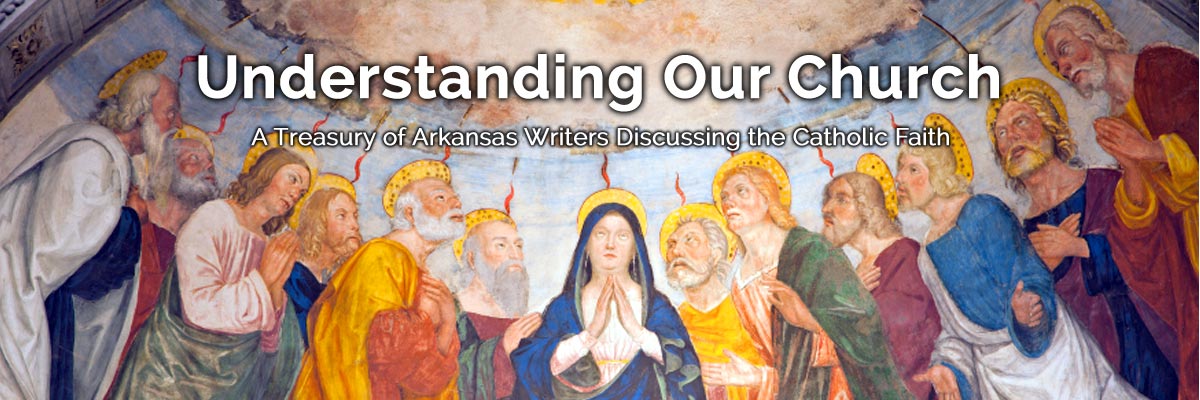Official Website of the
Catholic Diocese of Little Rock
Jesus helps faithful carry life’s burdens so we can find rest in him
Published: February 2, 2017
By Edward C. Dodge
Catholic High School for Boys
“Come to me, you who labor and are burdened, and I will give you rest. Take my yoke upon you and learn from me, for I am meek and humble of heart; and I will give you rest.” (Matthew 11: 28-30)
This seems paradoxical; how can taking Christ’s yoke bring us rest? In order to understand this verse more fully, we have to understand how Israel understood its communion with God through the Torah and the Sabbath and how Jesus places himself into that paradigm.
Ancient Israel’s religion focused initially on animal sacrifices, but prophetic teaching that God preferred a contrite heart and the destruction of the temple in A.D. 70 provided Israel an opportunity to re-evaluate how it related with God.
When we turn to Jesus, when he becomes our identity, we find that the burdens we had tried to carry alone cease to be quite so wearisome. Jesus does the heavy lifting for us. And we rest.
While this is an oversimplification of historical movements, it does help us to understand how synagogue worship and study of the Torah came to take a more central role throughout Judaism, which by necessity emphasized the Sabbath rest because the Sabbath afforded people the opportunity to focus on God, who himself had rested on the Sabbath.
In the Sermon on the Mount, Jesus alarmed the crowd by teaching as one with authority; that is, he didn’t just explain or interpret the law, but by teaching a way to fulfill the law (for example, hatred as a form of murder in one’s heart), Jesus actually seemed to adopt a position of equivalence with God.
So, is he God, or is he erring by adopting God’s authority? It is this reading of the sermon we can experience in Jacob Neusner’s book, “A Rabbi Talks with Jesus,” which Pope Benedict XVI employed in his study of the sermon in his work, “Jesus.” (Volume 1)
When Neusner, still living in the world of Christ, visits a local rabbi to talk about what he’d heard in the Sermon on the Mount, the rabbi considers the history of the Torah. Moses, he said, brought 613 commandments. David reduced them to 11; Isaiah reduced them to two: Habakkuk to one: “But the righteous shall live by his faith.”
What, he asks Neusner, has Jesus removed from the Torah? “Nothing.” Then what did he add? “Himself.” If it is the law and the Sabbath rest that identify Israel and establish communion with God, it is that same mantle that Jesus claims for himself in the new covenant.
In him do we find our central meaning; in him do we find our law; in him do we find our rest? Remember the rich young man who followed all Ten Commandments and needed to know what else to do? “Sell all that you have and give it to the poor,” Jesus told him, “and follow me.”
Pope Benedict taught that from the moment of his baptism, Christ bore the weight of our sins as though already carrying the cross. Christians have understood Christ’s sacrifice to be wholly efficacious, saving all through his death alone, but St. Paul also taught that we each have our own role to play in salvation. Here’s where the yoke comes in.
Farmers in Judea yoked two oxen together, and the yoke was so constructed that one ox did most of the work, allowing a strong ox to be paired with a younger or older ox, whose job was easier but still essential in order to complete the task at hand.
Just so, when we turn to Jesus, when he becomes our identity, we find that the burdens we had tried to carry alone cease to be quite so wearisome. Jesus does the heavy lifting for us. And we rest.




